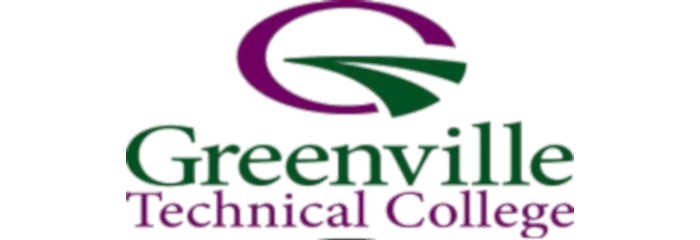
25 Best HVAC Schools 2020
The 25 best HVAC certificate programs can be found on this list. Institute for Business and Technology stands out from the rest with a median salary of $51,400 for students one year after graduating. In second place is Perry Technical Institute, with a median annual salary of $49,600 for HVAC program graduates.
Tuition, median salaries, and median debt were reported by the U.S. Department of Education in November 2019. View our methodology for more details about these rankings or read more about the top-ranked schools.
2020 Best Colleges Highlights
Learn more about the top colleges for a Certificate in HVAC degree. You can also read student reviews of each school by clicking on the stars. Although student reviews were not used as a ranking factor in this list, we provide ratings and reviews so students can consider the experience of alumni in their decision-making process.

The Institute for Business and Technology offers HVAC Training for commercial refrigeration, heating, and air conditioning, providing students the opportunity to receive an ESCO EPA certification. HVAC technicians are in high demand, and the program at IBT delivers comprehensive education that is above and beyond the introductory level of HVAC training. Students of this program can expect to walk away with skills in electrical theory and controls, welding and soldering, and plumbing, as well as the knowledge and skills to install, service, and repair residential and commercial systems while adhering to EPA regulations.
Graduates will feel prepared to sit for industry-recognized certifications such as the ESCO EPA Certification, HVAC Excellence Certification, 410A, and OSHA certification. As qualified, skilled HVAC techs are in high demand, once completing the program, newly certified technicians can find employment in a variety of settings, including mechanical contractors, air conditioning/heating companies, hotels, hospitals, office buildings, construction sites, or in private industries.

The HVAC Technology program at Perry Technical Institute is a strong option for students looking to acquire the skills necessary to earn certifications in Universal R-410A Safety, OSHA Safety, Green Mechanical Systems, Preventative Maintenance, and Indoor Air Quality. The program is approved by the Washington State Department of Labor and Industries and is a two-year program.
Students take classes such as Refrigeration Fundamentals, Resident and Light Commercial HVAC, and Industrial Heating and Cooling Systems, totaling 2872 hours and 169 credits. From steel pipe threading to sheet metal fabrication concepts to wiring equipment, the training one receives through this program is comprehensive and rigorous. In each unit of learning, students also earn credit in a lab setting, allowing them to get hands-on experience from the beginning of their education. The program ends with a required externship, furthering the opportunity to work in a professional setting prior to graduation. The increasing need for skilled HVAC technicians and the rewarding career resulting from HVAC technician certification makes Perry Technical Institute a strong option for prospective students.

Hennepin Technical College offers an HVAC Associate in Applied Science degree, as well as a diplomas in both Commercial and Residential HVAC. In order to receive the Commercial HVAC diploma, one must successfully complete the Residential HVAC program, or have a minimum of 2 years of related work experience. The Commercial HVAC diploma itself is 36 credits over two semesters. Classes in the first semester include Packaged Heating and Cooling Equipment, Pneumatic Controls, as well as training in commercial ice-making machines and commercial heat pump systems.
The second semester expands on this training and incorporates low-pressure steam and water boilers, supermarket refrigeration, and computer room air conditioning. Additionally, in the second semester, students begin to develop career skills with courses in writing for careers and communication in the workplace. With strong technical and professional advancement education, graduates will enter the workforce able to secure employment as an installer, quality control technician, service technician, or layout designer.

As the largest community college in North Carolina, Wake Technical Community College serves its large student base with community sites, training centers, and six campuses. For prospective students interested in pursuing a rewarding career as an HVAC technician, the college offers several different educational pathways. One of these is the HVAC diploma, which is available at the Southern Wake campus and the Scott Northern Wake campus.
This program requires 39 credits and provides the knowledge and understanding to work on residential and light commercial systems. Through classes such as Introduction to Refrigeration, Heating Technology, HVAC Servicing, and Math Measurement and Literacy, students will graduate able to properly and efficiently provide maintenance service and repair, as well as assist in the installation and start up of systems in homes and businesses. Where applicable, most offered classes include both classroom and lab learning. Financial aid is available for this program.

The HVAC program offered through Greenville Technical College is one of three accredited programs in the state of South Carolina and strives to provide excellent comprehensive training to students working toward certification in the field. The program is designed to accommodate working students, with both daytime and evening classes. Students will learn skills and techniques using state-of-the-art equipment, and take classes that cover topics such as installation and service, troubleshooting, commercial refrigeration systems, environmentally safe refrigerants, and direct digital controls.
GTC's professors are dedicated to the success of students in the HVAC program, and several have been recognized by the HVAC Excellence Organization as certified master HVAC/R educators. The coursework and hands-on experience provide the knowledge for students to successfully pass their certification and begin working in the field in residential or commercial settings such as movie theaters, hotels, office buildings, grocery stores, and hospitals.